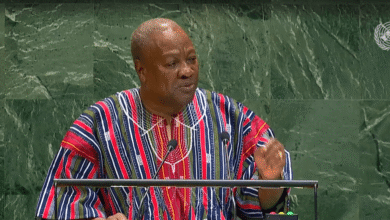Why Article 146 is flawed and dangerous – Vincent Assafuah explains

Old Tafo MP, Ekow Vincent Assafuah, has raised alarm over what he describes as serious constitutional loopholes that enabled the removal of Chief Justice Gertrude Torkornoo from office.
In his analysis, the New Patriotic Party (NPP) legislator argued that Ghana’s constitutional design had been exposed by this impeachment process, where weak allegations and partisan influence were enough to topple the head of the judiciary.
“The allegations that birthed this removal were flimsy at best, and laughable at worst. Travelling with her spouse, for instance, is hardly the ‘stated misbehaviour’ envisioned by Article 146(1). Yet such weak claims were enough to unseat a Chief Justice,” Assafuah noted.
He also criticized the impeachment committee’s composition under Article 146(6), which allows a majority of non-lawyers to decide technical legal issues.
“This arrangement has proven deeply problematic. In practice, it allows non-lawyers to hold the decisive majority on technical legal issues. Questions of admissibility, procedure, and law can effectively be settled by persons without the training to fully appreciate them,” he stressed.
According to Assafuah, the failure to address these constitutional flaws has made the judiciary vulnerable to executive overreach.
“This dangerous precedent is now part of Ghana’s constitutional fabric. Judicial independence, guaranteed under Articles 125 and 127, has been sacrificed on the altar of political control,” he argued.
The MP warned that unless urgent reforms are made, the removal of Chief Justice Torkornoo would become a dark precedent that weakens Ghana’s democracy for generations.




